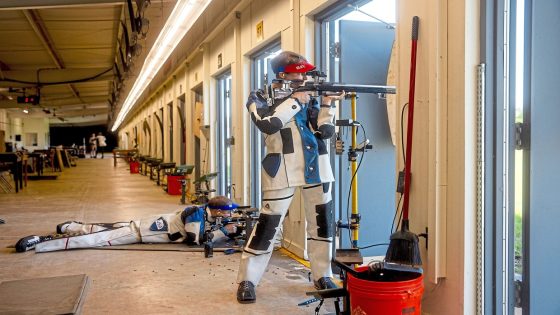With more than 130 schools and more than 130 years of history, there’s a rivalry every week somewhere in college football. Some are titanic clashes, some are petty border disputes, but all of them mean the world to the rivals involved. This season, we’ll let you in on the triumphant, the heartbreaking, and the ridiculous from rivalries all over the country. Today: the (far-too-early) return of the Apple Cup.
The schools: Washington and Washington State. It’s a classic snobs-vs.-slobs, city-vs.-country, wine-vs.-beer kind of rivalry. Everyone involved believes their side is touched by the divine and the other side is a gaggle of lost heathens … which is exactly what you want out of any rivalry.
The history: The University of Washington first faced the “Agricultural College, Experiment Station and School of Science of the State of Washington” on the football field in 1900. Soon afterward, the Agricultural College shortened its unwieldy name to Washington State — which in turn was shortened still further to “Wazzu” — and the schools began their century-plus-long rivalry. UW and Wazzu have met almost every year since 1900, except when world wars and the occasional pandemic intervened. It’s served as a gateway to the Rose Bowl on multiple occasions for both teams.
The series: Washington leads the series, 76-33-6. The Huskies have won the last two, nine of the last 10 and 12 of the last 14 in the series. Washington is roughly a 4.5-point favorite this year.
The trophy: The Apple Cup Trophy, which features a two-handled cup and engraved scores of the rivalry’s history on a wooden base, resides at whichever university last won the game. Both schools have a shelf set aside for the trophy, and the jokes about dust gathering on the losing team’s shelf are frequent, constant and expected.
Washington produces more apples than any other state in the union, by a wide margin. (Second place: Washington’s national championship rival Michigan.) Washington’s Apple Commission first donated the “Big Apple Trophy” to the game in 1963, replacing the unoriginal “Governor’s Trophy.” Ever since, the game, and the series, have been known as The Apple Cup.
Notable games:
Moon Shot, 1975: Washington trailed Washington State 27-14 late in the fourth quarter. But when the Cougars opted to go for a late 4th-and-1 conversion rather than a putaway field goal, Washington’s Al Burleson returned an interception 93 yards for a touchdown. After a defensive stop, Washington’s Warren Moon heaved a pass downfield that was tipped right into the hands of Spider Gaines, who scored a 78-yard go-ahead touchdown.
The Snow Bowl, 1992: There’s nothing better than a good weather-impacted college football game, and the 1992 edition of the Apple Cup was played in Pullman in a wicked snowstorm. The highlight play: Drew Bledsoe nailing Philip Bobo in the end zone with a touchdown pass that sent Bobo sliding face-first into a snowbank:
That touchdown helped Wazzu knock off the defending (split) national champion Huskies, and any day you can bring your rival back to earth is a good day, no matter how cold the ground is.
“The Game Is Over,” 2002: The underdog Huskies managed to take the lead in overtime against the Cougars, and then the game turned on a single, maddening play. Wazzu backup quarterback Matt Kegel threw what was supposed to be a screen pass, but Washington lineman Kai Ellis stepped in the way and briefly snared it. The ball hit the ground. Incompletion, right? Referee Gordon Riese crushed Wazzu’s hopes with a swift declaration: “The ruling on the field was that it was a backward pass. Washington recovered that backward pass, and the game is over.”
Both sides absolutely lost their minds as officials and players left the field under a hail of bottles and curses.
The Crapple Cup, 2008: Look, they can’t all be gems. In 2008, the teams met witha combined 1-20 record. No, that’s not a misprint. It took two overtimes, but Washington State won 16-13 in an Apple Cup matchup that was, as sportswriters called it at the time, “full of worms.”
The Last Hurrah, 2023: In one of the gutsiest calls in Apple Cup history, Washington coach Kalen DeBoer went for the conversion on fourth-and-1 with just 1:11 remaining in the game and the score tied. At risk: Washington’s undefeated season and, as it turned out, a College Football Playoff berth. But Michae Penix Jr. pitched to Rome Odunze, who picked up the necessary yard, and 22 beyond that, to set up a game-winning field goal. Two games later, Washington played for the national title against Michigan. One game after that, Penix, Odunze and DeBoer were all gone … and so was Washington itself, which jumped from the Pac-12 to the Big Ten after the season. And that sets the stakes for this year’s rematch.
This year: Yes, both schools are coming into this game undefeated for the first time since 1935. But there’s a massive caveat to that. The Apple Cup is one of the most visible, painful reminders of how college football’s conference realignment is upending and severing some of the sport’s longest-running traditions. Washington and Washington State will meet once again this year — but it’s now a September matchup, not a Thanksgiving one. It’s a nonconference battle, not one for Pac-12 supremacy. And this year, the Apple Cup will kick off at Lumen Stadium, the sleek, professional home of the Seattle Seahawks, not a campus stadium.
The Apple Cup will continue at least through 2028, and the trophy will still occupy a place of honor at whatever school wins it, but something powerful and irreplaceable about this rivalry has been lost to realignment.
Source Agencies

